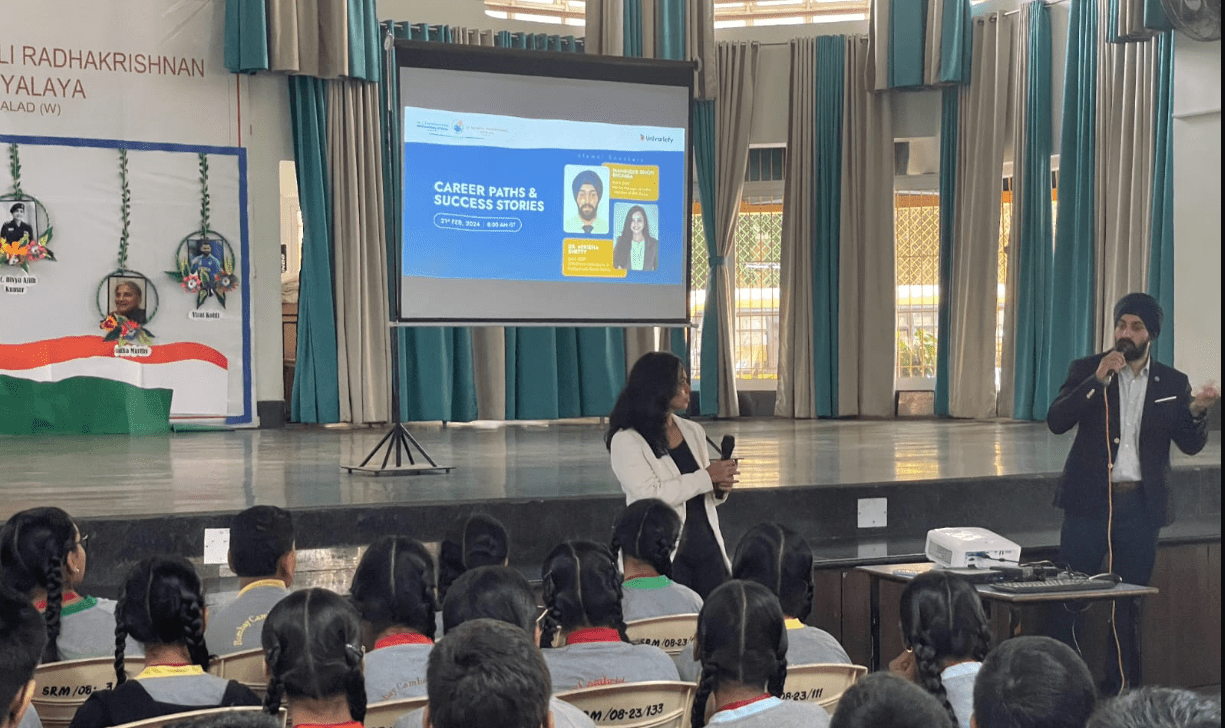Final exams are a critical part of academic life, and the pressure to perform well can be overwhelming. Thankfully, alumni who have successfully navigated this journey offer valuable insights and strategies. Drawing from their experiences, this guide will provide you with Top Alumni Tips for Exams.
Whether you’re a freshman or a senior, these tips are designed to help you optimise your study habits, manage your time effectively, and approach your exams with confidence.
Alumni Insights and Proven Tips For Exams

Mishty Thakker, who graduated in 2022 and joined the prestigious Northeastern University, talks about her mantra that helped her score well during exams. Imagine over 100 alumni sharing what routines helped them, hacks that worked, and much more.
At Univariety, we prioritise the need for alumni engagement and our E-book on ‘Alumni Guidance During Exams‘ showcases how our powerful library can help students balance their studies and life. You’ll get the following benefits:
- Get insights on the strategies that helped alumni during exams.
- Learn what kept them calm during the exam season.
- Understand how they balanced exams, school, and career.
- Find questions to ask alumni about college.
- Make the most of videos from alumni based all over the world.
Now, let’s break down what Mishty Thakker & other alumni have in common when they share useful tips for junior students who are preparing for upcoming exams.
The Power of Planning
Create a Study Schedule

One of the most consistent pieces of advice from alumni is the importance of a well-structured study schedule. By mapping out your study time, you can ensure that you cover all necessary material without last-minute cramming.
- Start Early: Begin preparing at least three weeks before your exams. This gives you ample time to review all your coursework.
- Break It Down: Divide your subjects into manageable chunks. Focus on one topic at a time to avoid feeling overwhelmed.
- Prioritize: Identify the subjects or topics you find most challenging and allocate more time to them.
Use a Planner
Utilizing a planner can help keep you organized. Write down your exam dates, study sessions, and important deadlines. Alumni recommend colour-coding your planner for quick reference.
Active Learning
Engage actively with the material instead of passively reading. Alumni swear by techniques that make studying more dynamic and interactive.
- Summarize Information: After reading a chapter, write a summary in your own words. This helps reinforce what you’ve learned.
- Teach Someone Else: Explaining concepts to a friend or study group can deepen your understanding.
- Use Flashcards: Create flashcards for key terms and concepts. This method is especially useful for memorizing information.
Practice with Past Papers
Reviewing past exam papers is a strategy many alumni found invaluable. It familiarizes you with the exam format and types of questions that may be asked.
- Timed Practice: Simulate exam conditions by timing yourself while answering past questions.
- Identify Patterns: Look for recurring themes or questions. This can give you insights into what areas to focus on.
Mind Mapping
Mind maps are a great way to visually organize information. They help in linking concepts and making connections between different topics. Alumni often recommend this technique for subjects that require a lot of memorization.
Stay Healthy
Maintaining your physical health is crucial during exam time. Alumni emphasize the importance of a balanced diet, regular exercise, and adequate sleep.
- Eat Nutritious Meals: Avoid junk food and opt for brain-boosting foods like nuts, berries, and leafy greens.
- Exercise Regularly: Even short bursts of physical activity can help reduce stress and improve concentration.
- Get Enough Sleep: Aim for 7-9 hours of sleep per night. Proper rest is essential for cognitive function and memory retention.
Take Breaks
Breaks are essential for maintaining productivity and avoiding burnout. Alumni suggest the following methods to ensure effective rest periods.
- Pomodoro Technique: Study for 25 minutes, then take a 5-minute break. After four cycles, take a longer break of 15-30 minutes.
- Short Walks: Taking a short walk outside can help clear your mind and reduce stress.
- Meditation and Deep Breathing: These practices can help calm your mind and improve focus.
FAQs
Q. How can I make my final exam better?
To excel organize your notes early and make a study plan, pinpointed mainly on difficult topics and practice past exams. Maintenance of good health is also the duty by keeping the resting right and using time properly in the hall of examination.
Q. What strategy will you use to prepare for your final exam?
I will make a study schedule, keeping in mind those subjects that need more attention. Active learning techniques like teaching concepts to others will be implemented. Practice with mock exams for proper management of time and confidence boosters.
Q. How to study 1 week before finals?
Conclusion
Final exams can be daunting, but with the right strategies, you can turn this challenging period into an opportunity for success. Alumni who have been through this process provide valuable advice that can help you navigate your exams by providing top Alumni Tips for Exams. By planning, using active study techniques, managing stress, and being well-prepared on exam day, you can approach your finals with confidence and achieve the results you desire.
Remember, your final exams are just one step in your academic journey. Stay focused, believe in your abilities, and apply these proven tips to excel. Good luck!
Sayantika is a psychology student who likes poetry, music, and movies. Her writing style is engaging, informative, and tailored to the specific needs of each subject. Whether it's blog posts or product descriptions, she knows how to create content that resonates with search engines and human readers.





